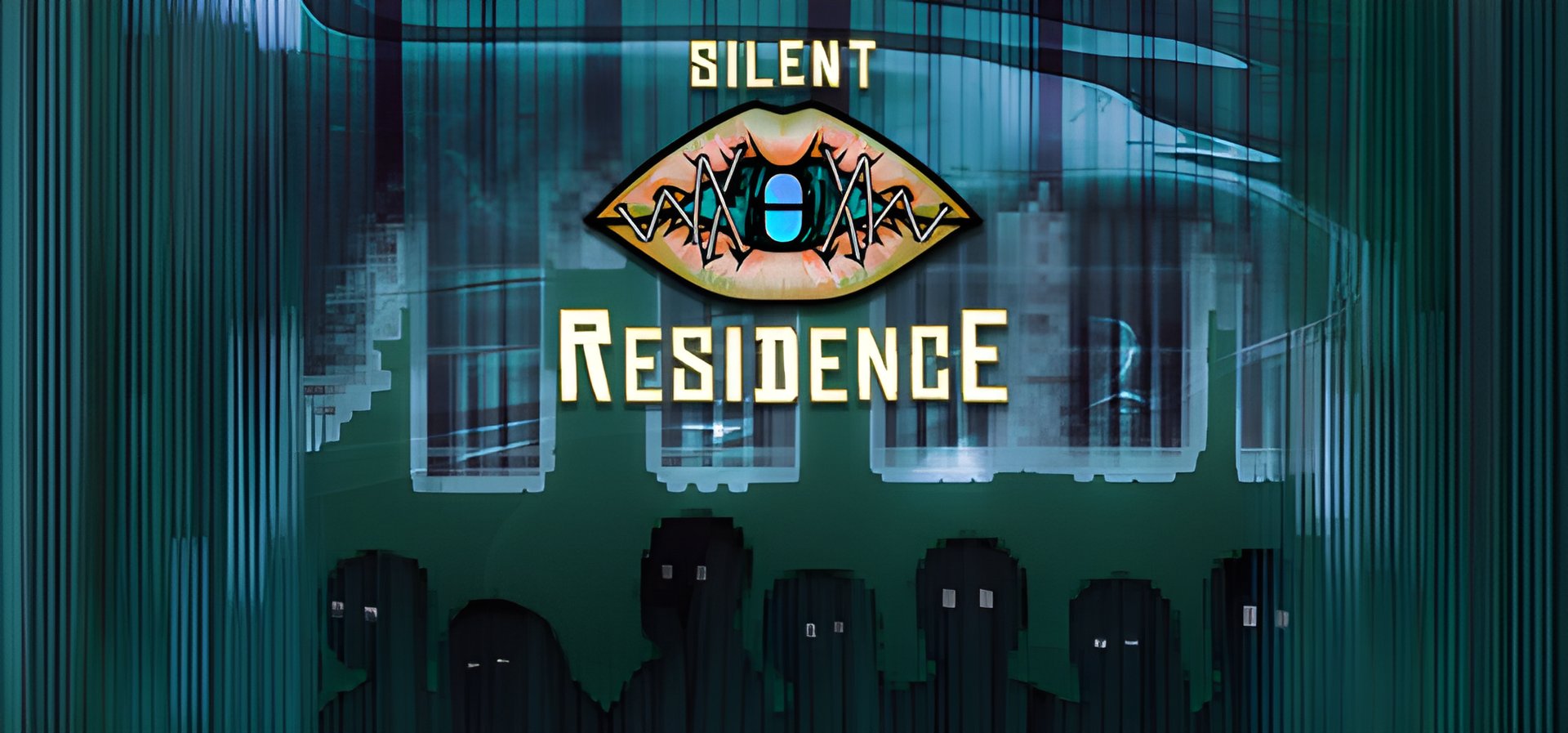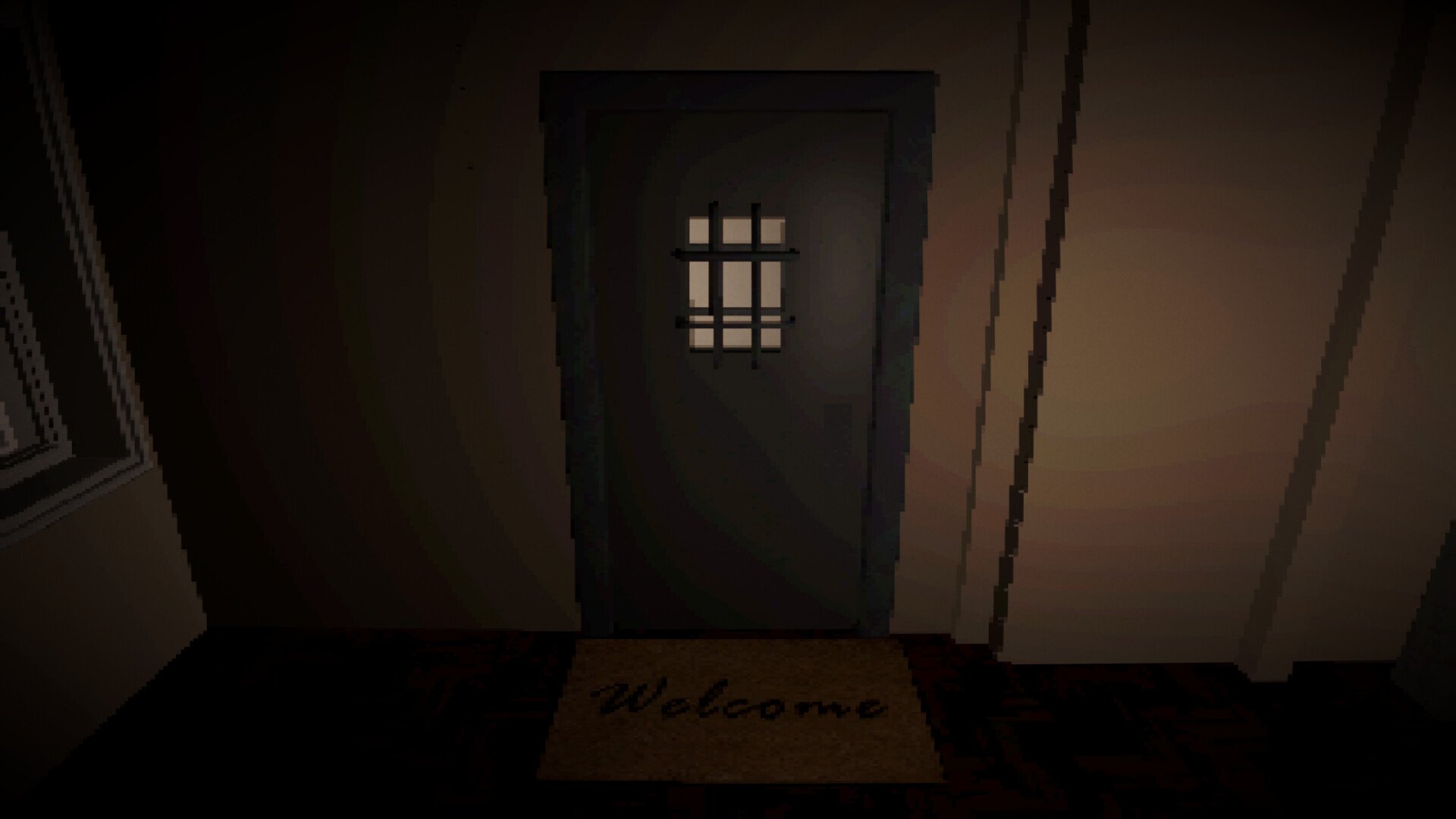Silent Residence is an upcoming free-to-play psychological horror game that plunges players into the fractured mind of Harry, a man struggling with schizophrenia and multiple personalities. Releasing in 2025, this indie title aims to explore themes of mental tension, identity, and fear through a disturbing first-person perspective. Get ready to confront terrifying hallucinations and delusions as you navigate a world where reality is constantly shifting. Will you be able to help Harry hold on to what's real, or will you succumb to the horrors within his mind?

Delving into Harry's Schizophrenic World
Silent Residence places you directly into the shoes of Harry, a character whose perception is warped by a severe case of schizophrenia. This manifests as both auditory and visual hallucinations, blurring the line between what is real and what is not. The game cleverly uses its environment to reflect Harry's mental state, twisting familiar locations into nightmarish versions of themselves. The core mechanic revolves around navigating Harry's apartment complex and interacting with neighbors, but these interactions are fraught with uncertainty, as Harry's delusions make it difficult to trust anyone.
The game's description emphasizes mental tension and the feeling of losing touch with reality. This is achieved through a combination of unsettling visuals, unpredictable environmental changes, and a narrative that constantly questions the player's understanding of events. The emphasis on NPC Interaction adds another layer of complexity, as players must decipher whether the characters they encounter are genuine or figments of Harry's imagination. The developers, Woyboy, aim to create a psychological horror experience that resonates with players on a deeper level, exploring the fear and isolation that can accompany mental illness.
As Harry, players will need to manage their sanity while solving puzzles and uncovering the truth behind their fractured reality. The gameplay is designed to be unsettling and disorienting, with a focus on creating a constant sense of unease. Hallucinations and Delusions are not merely visual effects; they are integral to the game's mechanics, influencing the environment and the player's ability to progress. The ultimate goal is not just to survive the horrors that Harry faces but to understand the underlying causes of his mental state and find a way to cope with his condition. The game will be released on August 19, 2025.
This free-to-play title is targeted towards players who enjoy psychological horror games with a strong narrative focus. It caters to those interested in exploring themes of mental illness and identity through interactive storytelling. With its focus on atmosphere and suspense, Silent Residence aims to provide a thought-provoking and emotionally challenging experience for players brave enough to confront its unsettling themes.
Performance Expectations and Free-to-Play Value
Since Silent Residence is still under development, and scheduled to be released on August 19, 2025, predicting its exact performance on various systems is challenging. However, the listed minimum and recommended PC requirements offer valuable insight. The minimum requirements, including an Intel Core i3-3220 or AMD FX-4300 processor and Intel HD 4000 graphics, suggest that the game is designed to be accessible to a wide range of players, even those with older or less powerful hardware. The recommended specifications, featuring an Intel Core i5-8400 or AMD Ryzen 5 1600 processor and NVIDIA GTX 750 Ti or AMD Radeon R7 260X graphics card, indicate that a more modern system will provide a smoother and more visually impressive experience.
Given the game's focus on psychological horror and environmental details, solid and consistent performance is crucial for maintaining immersion. Frame rate drops or graphical glitches could significantly detract from the intended atmosphere of tension and unease. The developers, Woyboy, will need to prioritize optimization to ensure that the game runs smoothly on a variety of hardware configurations. Considering the game's free-to-play nature, expectations regarding graphical fidelity and advanced features might be tempered somewhat. However, a stable and well-optimized experience is essential for attracting and retaining players.
The free-to-play model also raises questions about monetization. It remains to be seen how Woyboy plans to support the game's development and ongoing maintenance. Common strategies for free-to-play games include cosmetic items, expansions or DLC, or optional subscription services. The key to a successful free-to-play model is to offer valuable content without compromising the core gameplay experience or resorting to pay-to-win mechanics. If Silent Residence can deliver a compelling and engaging experience without forcing players to spend money, it has the potential to build a large and dedicated community.
Ultimately, the value of Silent Residence will depend on its ability to deliver a captivating psychological horror experience. The free-to-play model lowers the barrier to entry, allowing a wider audience to sample the game and decide whether it resonates with their tastes. If the game can successfully blend unsettling atmosphere, compelling narrative, and engaging gameplay, it has the potential to become a popular title within the indie horror genre. However, performance optimization and fair monetization practices will be critical factors in its long-term success.

Contextual Analysis: Finding Its Place in the Horror Landscape
Silent Residence enters a crowded market of indie horror games, many of which explore psychological themes. To stand out, it needs to offer a unique perspective or a particularly compelling execution of familiar tropes. The game's focus on schizophrenia and multiple personalities could provide a fresh angle, delving into the internal struggles of a character grappling with a severe mental illness. This approach differentiates it from more conventional horror games that rely on external threats or supernatural elements.
However, handling sensitive topics like mental illness requires careful consideration and respect. The developers must avoid sensationalizing or trivializing the experiences of individuals living with schizophrenia. Instead, they should strive to portray Harry's condition with empathy and nuance, using the game as a platform to raise awareness and promote understanding. This approach could attract a wider audience, including those interested in exploring mental health themes through interactive media.
The game's success will also depend on its ability to build a community and maintain long-term engagement. Regular updates, bug fixes, and new content could help to keep players invested in Harry's story and the world of Silent Residence. The developers could also explore opportunities for community involvement, such as incorporating player feedback into the game's design or hosting events and contests. A strong community can provide valuable support and contribute to the game's longevity.
Given the free-to-play nature of Silent Residence, the developers will need to balance accessibility with monetization. While the game should be easy to pick up and play without spending money, there should also be compelling incentives for players to support its development. This could include cosmetic items, expansions or DLC, or optional subscription services. The key is to offer value without compromising the core gameplay experience or alienating players who are unwilling to spend money. By carefully considering these factors, Silent Residence has the potential to carve out a niche for itself within the competitive landscape of indie horror games, offering a thought-provoking and emotionally resonant experience for players willing to delve into the depths of Harry's mind.
Final Verdict: Is Silent Residence Worth the Download?
Silent Residence presents an intriguing premise: a free-to-play psychological horror game exploring the complexities of schizophrenia. The success of the game hinges on its ability to respectfully and accurately portray this mental illness while delivering a genuinely unsettling and engaging horror experience. If the developers, Woyboy, can achieve this delicate balance, Silent Residence has the potential to be a standout title in the crowded indie horror scene. The promise of NPC interaction, and hallucinations and delusions will have to be fully realized to be a success.
For players drawn to psychological horror and narratives that delve into complex themes, Silent Residence is definitely worth keeping an eye on. The free-to-play model makes it easily accessible, allowing players to sample the game without any financial commitment. However, those sensitive to depictions of mental illness should approach with caution, as the game's content descriptors indicate the presence of potentially disturbing scenes involving blood, corpses, suicide, and violence. Ultimately, Silent Residence offers a unique opportunity to explore the depths of the human mind and confront the horrors that can reside within.
Pros & Cons
✅ Pros
- Intriguing premise exploring schizophrenia and mental illness
- Free-to-play model lowers the barrier to entry
- Potential for a thought-provoking and emotionally resonant experience
- Focus on psychological horror rather than jump scares
- Unique narrative approach with shifting realities
❌ Cons
- Handling of sensitive topics requires careful execution
- Free-to-play monetization could be intrusive
- Performance optimization is crucial for immersion
- Horror elements may be disturbing to some players
- Success depends on unique execution of narrative